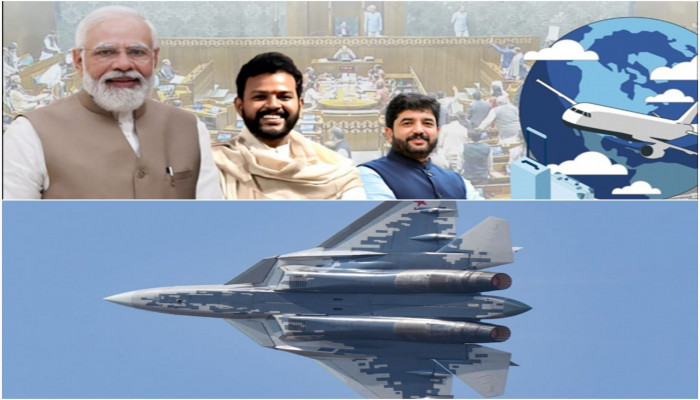Lok Sabha passes Aircraft Objects Bill, 2025, second major aviation reform by Ram Mohan Naidu
- In Reports
- 12:26 PM, Apr 05, 2025
- Myind Staff
The Protection of Interest in Aircraft Objects Bill, 2025, presented by Civil Aviation Minister Ram Mohan Naidu, was passed in the Lok Sabha on April 3 after the green light from the Rajya Sabha. This is the second major aviation reform under his leadership. The bill aims to bring India’s aircraft leasing and financing system in line with global norms, helping attract more investment into the country’s fast-growing aviation sector.
The bill is based on the Cape Town Convention of 2001, which was designed to make international aircraft leasing deals more straightforward and consistent. Although India signed on to this convention in 2008, the lack of proper legal backing led to leasing costs being 8 to 10 per cent higher than in many other countries. This new law is meant to fix those legal loopholes, giving more assurance to aircraft lenders and lowering leasing expenses for Indian airlines.
Stressing the need for the new legislation, the Civil Aviation Minister outlined the goals behind the move and credited strong leadership for the aviation sector’s rapid growth. He shared striking numbers to back this up from independence until 2014, around 10.38 crore passengers flew annually in India. But by 2024, that number had more than doubled to 22.81 crore. The number of airports also saw a big jump, from 74 in 2014 to 159 in 2024, with two more expected to open soon. The fleet size followed a similar trend, rising from 340 aircraft in 2014 to over 840 by 2024. The minister noted that no other country has seen such fast-paced aviation growth in a short time.
The proposed bill aims to simplify aircraft leasing, attract more aviation investment to India, and boost the country’s compliance with the Cape Town Convention. These steps are expected to cut airline costs and make it easier for new players to enter the market.
During discussions on the bill, broader issues facing the civil aviation sector arose, especially the steep cost of Aviation Turbine Fuel (ATF), which makes up nearly 45% of airline operating expenses. The minister highlighted concerns about the varying ATF tax rates across states and encouraged more states to cut their taxes, as some already have. He noted that doing so would help improve regional air connectivity and make flying more affordable for passengers.
Looking ahead, the Civil Aviation Ministry has set bold goals focused on sustainability and expanding capacity. By 2025, it plans to produce 2.5 crore litres of Sustainable Aviation Fuel (SAF) and shift more than 100 airports to renewable energy sources, showing India’s strong push toward eco-friendly aviation.
Another major challenge is the rising need for skilled pilots, with an estimated requirement of 30,000 to 34,000 in the next 10 to 15 years. To tackle this, the government is working on setting up more Flight Training Organisations (FTOs) and increasing the number of commercial pilot licenses issued each year.







Comments